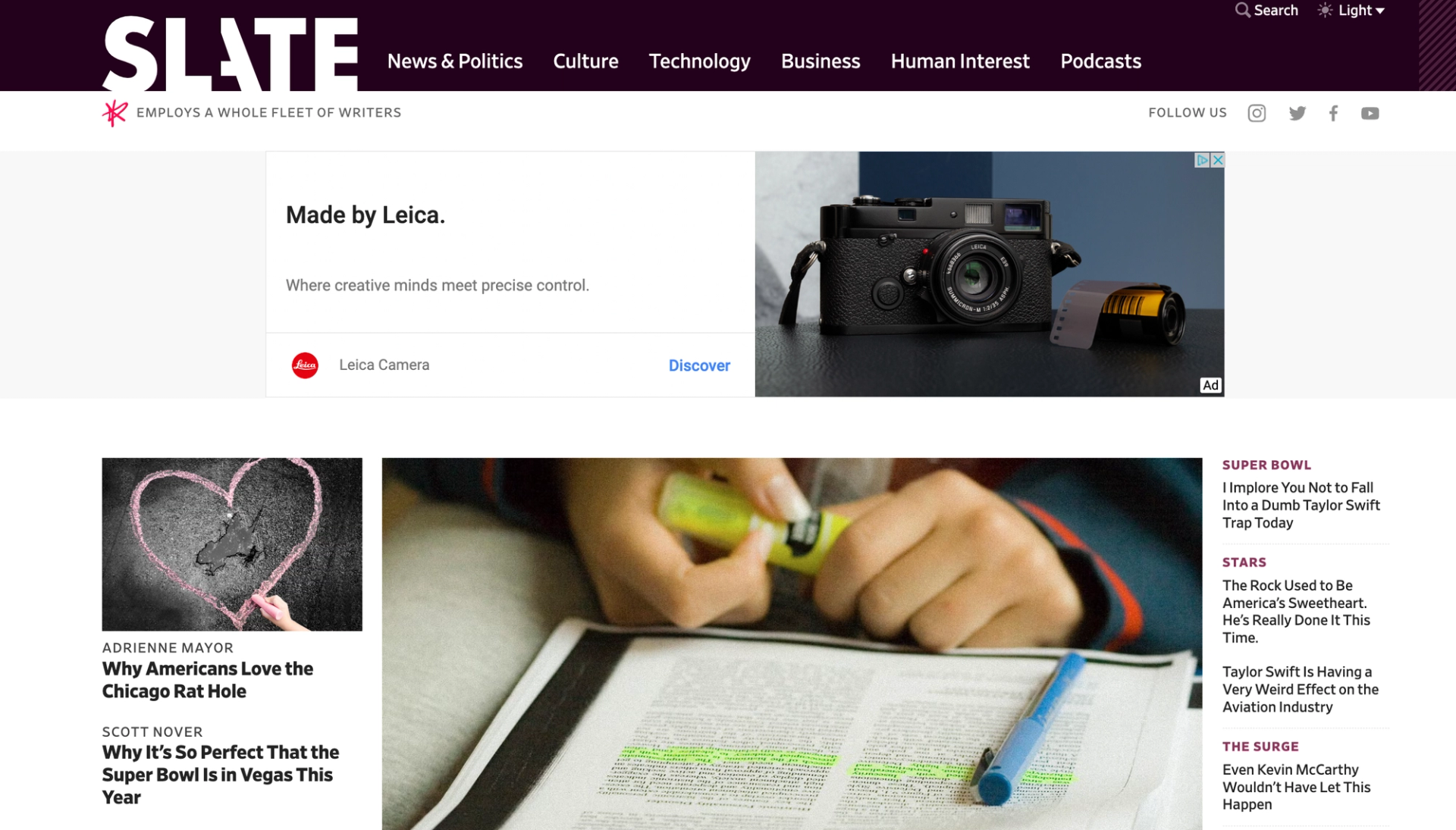The Scoop
Amid a difficult year for news media last year, at least one legacy digital media company has quietly been moving the other direction. Katie Rayford, a spokesperson for Slate, told Semafor that 2023 was the most profitable year in the digital media company’s 27 year history. According to Rayford, Slate’s revenue grew 28% year-over-year through a series of investments and growth in its core businesses, which revolve around its podcasts and website.
During a conversation at the Charleston Place hotel this week at the Digital Content Next conference, Slate’s chief executive officer Dan Check and chief revenue officer and president Charlie Kammerer said that they were a bit hesitant to celebrate their record-setting year due to the gloomy state of digital news media.
But they also said the company’s leadership was proud of their strategy. By focusing on its podcasts and website, Slate was able weather an otherwise dark media business climate and continue to grow.
“I feel a little lucky,” Kammerer said. “I’ve been in the business of news for a long time and you have to get a little lucky.”
“I think we’re running our own race,” Check said. “I don’t think we’re paying a lot of attention to what’s happening other places or the specific challenges they’re running into. There have been other years when others have had good years and we’ve had bad years. We’ve been on both sides of this.”
Know More
Slate was one of the first digital media companies to recognize the opportunity of chat podcasts, leveraging its journalists to host weekly discussion shows starting with the Political Gabfest in 2005, which remains its most-downloaded podcast ever and biggest driver of the publication’s Slate Plus membership business. (This author was an intern on the Gabfest in 2014). Podcasting now accounts for 50% of the company’s advertising revenue, with the other 50% coming from digital ads on its website (Kammerer said less than 50% of Slate’s total revenue came from ads). The company has increasingly sold more expensive brand ads, and has largely wound down what was a low-margin events business. Slate said revenue from its membership program had more than doubled over the past two years, and increased 33% last year alone, which it attributed to a raise in subscription price coupled with a lower churn rate than in previous years.
The gains in subscription and ad revenue allowed the company to make its first acquisition in years: The popular podcast Death, Sex & Money, which was canceled by WNYC last year as the local broadcaster faced its own financial struggles.
“We’re never going to be the biggest, ever,” Kammerer said. “So we’re trying to lean in on delivering the right kind of engaged, smart customer. But that’s still a challenge for us.”
“We are a 27 year old brand, so we do have deep connections with a large number of people. Everything we do is in light of what that audience is. How do we maintain that audience, deepen that engagement while also finding a new set of people.”

